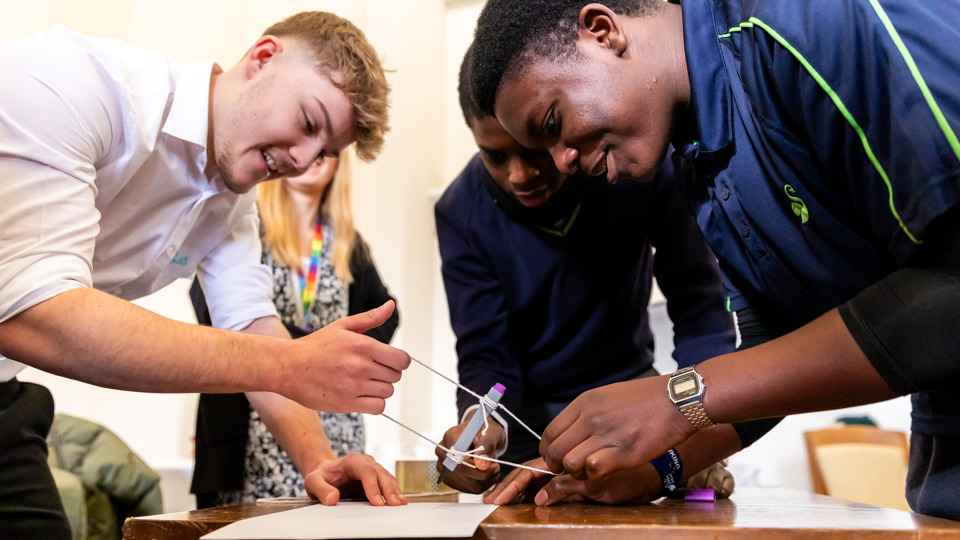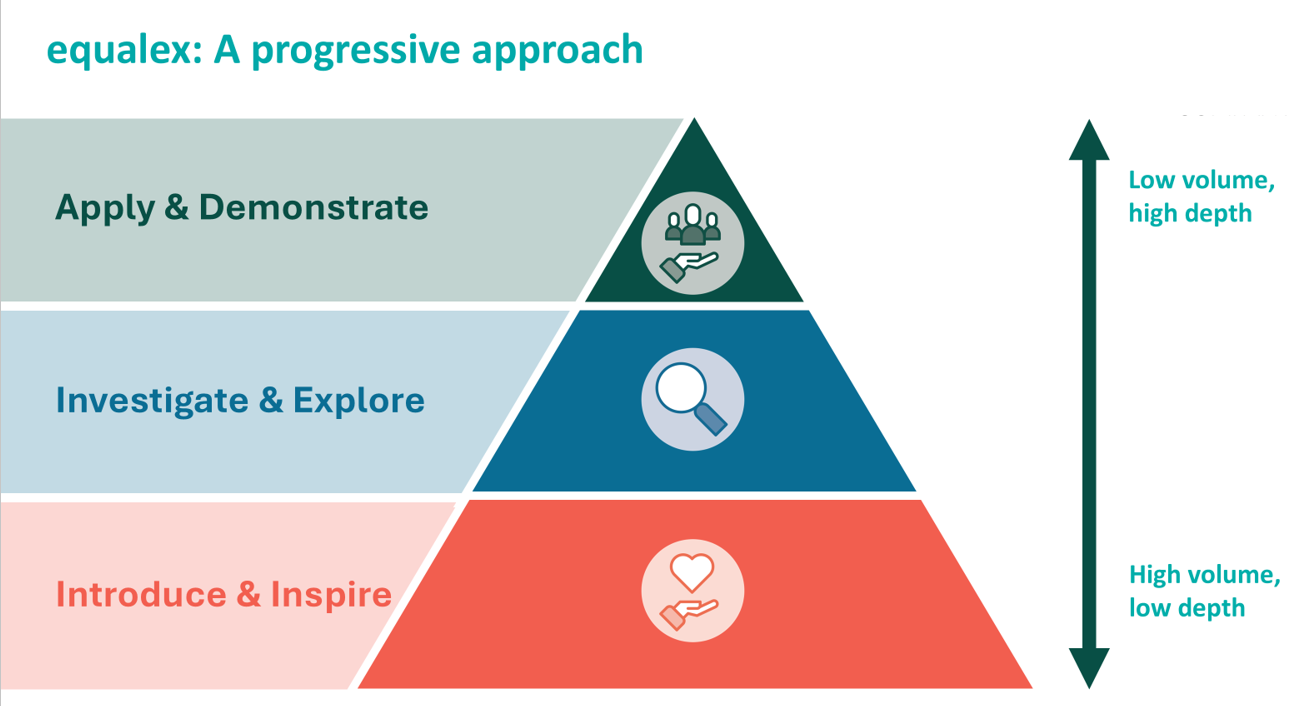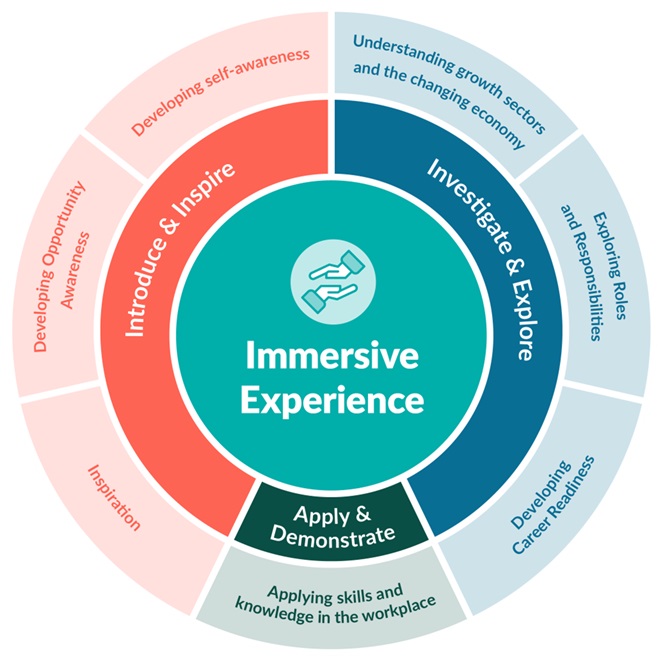Modern Work Experience

A work experience guarantee for every young person.
Modern work experience should guarantee every young person access to high-quality, multiple workplace experiences, totaling ten days' worth throughout secondary education.
This equitable approach will facilitate a variety of experiences starting early, connecting education and young people with industry and unlocking the skills and opportunities of the future workforce.
High quality work experience helps young people get ready for the world of work and when integrated into a structured careers programme - as defined by the Gatsby Benchmarks, work experience:
- Increases awareness of jobs and pathways like apprenticeships.
- Builds confidence in key skills like speaking and listening.
- Reduces the likelihood of a young person becoming NEET (Not in Education, Employment or Training) at 16 and 18.
What is the value of modern work experience?
Modern work experience will help young people to make informed choices and improve career readiness and employability by offering multiple, variable and targeted experiences throughout their education journey.
What is modern work experience?
A programme of modern work experience should:
|
- Prioritise young people who are missing out and provide targeted support |
- Start early, allowing access to multiple, different industries and occupations |
|
- Include experiences that are employer-led in their design |
- Be underpinned by learning |
|
- Enable meaningful relationships between the employer and young person |
- Offer meaningful experiences as defined in updated Gatsby Benchmark 6 |
The equalex approach is currently being piloted in partnership with four Mayoral Combined Authorities. Our ambition is to see this adopted across the country. Find out more about the Greater Manchester pilot.

Developed by the CEC and supported by Careers Hubs, the equalex approach offers:
- A framework of structured learning outcomes to raise the quality of work experience for learners
- A multi-year, multi-experience model supported by the curriculum and accessible to ALL learners
- A tiered approach providing a structure offering breadth and depth of workplace experiences
Key features of equalex:
- Quality: A multi-experience model that uses learning objectives to join activity together during a young person’s time at school
- Equity: A minimum of 10 days' worth of work experience - tailored days, blocked time periods etc.
- Flexibility: Structured to support all types of school and business, including smaller employers - hybrid, virtual etc

The equalex learning outcomes
To meet the equalex quality standard for experiences of the workplace, students must have the opportunity to meet and evidence the learning outcomes across all 3 core themes.
We encourage innovation regarding delivery of this framework and have not provided guidelines on how the outcomes must be achieved. Each of these learning aims and outcomes could be achieved via experiences of the workplace, but some can be mapped against other areas of a progressive careers programme.
The model offers structure, not prescription about when and how the 10 days' worth of work experience should be delivered. The flexibility – asked for by employers and schools – will help develop innovative and impactful approaches.

- The chance to offer work experience suitable to their size, industry and capacity including smaller employers who represent an untapped source of expertise.
- Inform and inspire learners about job roles in their sectors with incentives for priority sectors to address skills shortages.
- Develop relationships over the longer term – from year 7 onwards - building talent pipelines.
- Support from local Careers Hubs to ensure efficiency and co-ordination.


- The opportunity to develop experiences to match school and learner needs.
- Track days (and compliance) at the learner level.
- Connect work experience to wider curriculum goals including personal development.
- Access to ready-made resources and employers through local Careers Hubs.


- Benefit from ongoing and connected experiences with an emphasis on equity for disadvantaged learners.
- Link everyday learning to the skills and knowledge employers are looking for.
- Gain valuable insight into different industries to support career planning.

